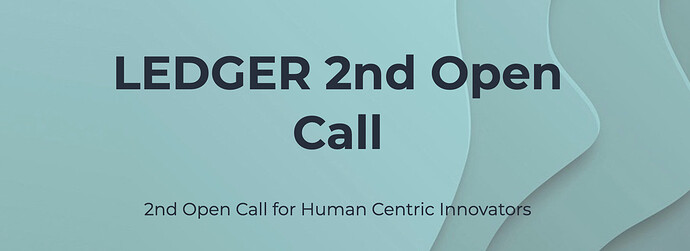Edgeryders one of the organizations running NGI Forward, a project tasked with helping the European Commission set out a strategy, as well as a policy and research agenda for the years ahead. This forum is a part of informing that strategy. Another part of the NGI ecosystem is generous funding opportunities, like that of NGI Ledger, which just opened its second round of funding for “16 projects to build Minimum viable products working on decentralised technologies where privacy by design, openness and citizen data sovereignty are at the core of their proposition”. Basically, it’s looking for projects focused on decentralised algorithms based on blockchains , distributed ledger technology (DLT) and/or peer-to-peer (P2P) technologies.
There are successful applicants from the first round on the Edgeryders forum. @BlackForestBoi and team received funding for WorldBrain.
Apply to LEDGER here. But first, you might want to seek advice from the community here on the platform. If you have ideas, we could help pair you up with people you might want to collaborate with or who could give you feedback on your application. Ping @zelf, @eb4890, @alcinnz, @zaunders, are you working on something at the moment that could fit the bill?
@felix.wolfsteller, @JuliaV, @kristofer, @notme, @noah, @William_COACT perhaps you know of someone who might be interested?
LEDGER: THE VENTURE BUILDER FOR HUMAN CENTRIC SOLUTIONS
Ledger second open call will be opening the 1st November and closing the 31st January 2020.
At LEDGER first open call we selected 16 projects over 1000 applications started and 291 submitted from over 35 countries.
At the second open call we are looking for another 16 projects to build Minimum viable products (MVPs) working on decentralised technologies where privacy by design, openness and citizen data sovereignty are at the core of their proposition.
LEDGER programme offers to the selected projects:
- Up to €200K equity-free for the best in class innovators
- A Venture Builder Programme of 12 months
- Technical and business mentorship along the programme
- Access to Venture Capital, pilots, exposure and networking
- LEDGER is calling for #developers #researchers #designers and entrepreneurs
WHO CAN APPLY?
- Teams might be composed of either:
- minimum 1 and maximum 2 legal persons (SME, research organizations, foundations) with a team composed by at least 3 profiles (researcher, developer, business development/entrepreneur) or
- minimum 3 natural persons (at least a researcher, developer and business development/entrepreneur ).
- The teams must consist of one legal entities or at least 3 natural persons legally established in an EU member state or in Associated Countries .
- Projects ( Technology Transfer Experiments ) have to be based in Research components , relevant for the topic of Privacy-by-Design , Distributed Data Governance and consisting in development, test and validation of technical and economic viability of Minimum Viable Product (MVP) or Service .
- The results of these bottom-up projects should be compliant with Open Licences (i.e. Open Hardware , Open Software and/or Creative Commons ).
MORE ABOUT LEDGER
LEDGER , a European project financed by the European Commission , is looking for 32 human centric innovators to develop Minimum Viable Products and Services , in order to achieve new models that preserve citizens’ digital sovereignty , where data is a common good owned by citizens and wealth created by data-driven platforms is equally distributed.
LEDGER is looking for SMEs , organisations and researchers that want to shift data management, leveraging on decentralised algorithms based on blockchains , distributed ledger technology (DLT) and/or peer-to-peer (P2P) technologies to address Privacy-by-Design , reliability , trustworthiness and openness to build human centric solutions .
The 16 selected companies will go through a 9-month customised venture builder programme receiving up to €150K in funding , and the best 8 will be offered additional €50K and will get in a business focused programme of 3 months.
Also, ping @RobvanKranenburg – perhaps you could tell us a little about how the first round is panning out?
